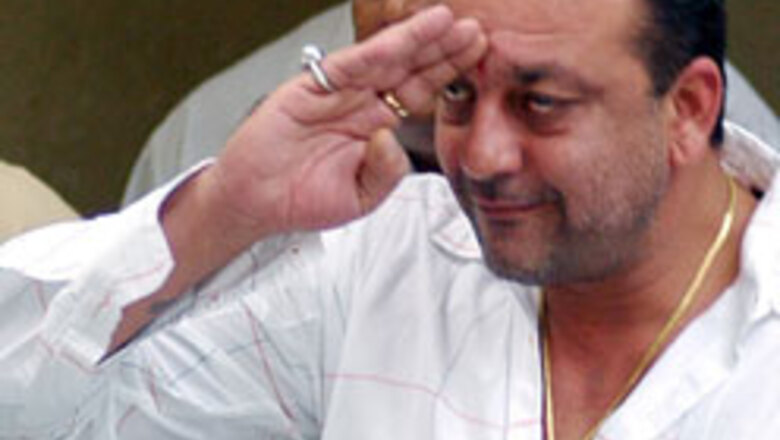
views
New Delhi: The Supreme Court, on Monday will decide on actor Sanjay Dutt’s bail plea in the 1993 Bombay blasts case.
Dutt and five other convicts are seeking bail on the grounds of unavailability of detailed judgment so that they can challenge their sentence on merit.
The actor, who has sought suspension of the six-year jail sentence, is seeking bail on the plea that he never violated the bail condition during the course of the trial.
In his appeal against the TADA court judgment, Dutt has sought relief on three grounds.
> that his conduct was impeccable during the last 12 years when he was on bail
> that the TADA court had failed to provide him with a copy of the judgement as required under Section 363(1) of CrPC
> that the court disregarded the testimonial of his good conduct from his probation officer while turning down the plea for his release under the Probation of Offenders' Act.
Dutt has also contended that the Special TADA court erred in holding him guilty under the Arms Act as no arms and ammunitions were recovered from his possession or from his residence at his instance.
The ruling on which Dutt's lawyers are pinning their hopes was given by a five-judge constitution bench of the Apex Court in December 1983 in Akali leader Jagdev Singh Talwandi's case.
Earlier while seeking an early bail for Dutt on August 10, senior counsel Fail S Nariman had referred to the Apex Court the 1983 ruling in the Talwandi case.
The actor, who was had been taken in custody soon after the pronouncement of the sentence, is currently lodged in Pune's Yerwada jail.
The TADA court sentenced Dutt to a six years' rigorous imprisonment on July 31 under the Arms Act in connection the 1993 Mumbai serial blasts. The actor, who spent 16 months in prison after his arrest in April 1993, was also fined Rs 25,000 by the court.
Dutt, 48, had earlier been convicted in November last year for the illegal possession of a 9mm pistol and an AK-56 rifle. However he was acquitted of more serious charges under the now defunct anti-terror TADA law.













Comments
0 comment